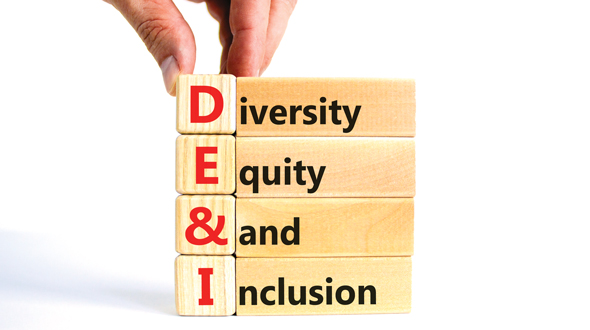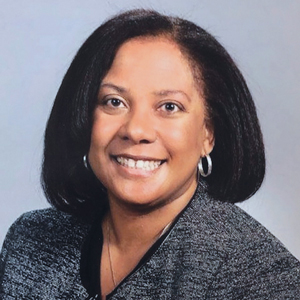Digging into DEI
Diversity, equity and inclusion, also known as DEI, has become a well-known phrase in the business world.
But DEI is multifaceted and looks different for each company. And, when done correctly, propane industry members say, DEI-supportive policies can help to achieve a marketer’s overall growth and business objectives.
Basic principles
Stephanie Hennen, marketing manager at Lakes Gas, describes diversity, equity and inclusion as “stepping stones” that build on one another. She suggests starting with diversity.
1. Diversity. Race and gender quickly come to mind for most people. However, there is much more to it, and diversity looks different for each company. It’s key to look at diversity in the truest sense of the word.
Diversity includes myriad factors such as age, background, where one grew up, education, religion and ways of thinking or communicating.
“The word diversity itself can scare some people because they immediately think race and gender [as] the only qualifications to be a diverse individual, which is absolutely not true,” Hennen says. “When you’re building a community, you’re looking at people that are different. You don’t want people who struggle in the same way as you because you’re never going to be able to get things done and move forward with an idea.”
2. Equity. Once a company establishes how diversity is present in its business and employee base, it’s time to evaluate equity. Hennen describes looking at equity as “making sure that all of the individuals within that community have exactly what they need to be successful and to participate fully no matter what characteristics they bring to the table.”
Equity creates a level playing field for employees, providing opportunities for them to voice opinions and ideas, advance in their careers and contribute to the overall goals of the company.
3. Inclusion. Hennen believes this final aspect of DEI is where the industry currently excels most: ensuring employees – regardless of background, characteristics or titles – are welcome in an organization.
To be inclusive involves being aware of one’s own biases and preferences, ensuring employees are respected and creating an environment where team members feel supported and like they belong.
Importance and benefits
The propane industry is recognizing DEI as a valuable part of the global conversation taking place around energy and the “electrify-everything” movement.
“The energy sector, in general, has millions of eyes always watching,” says Gabrielle Dellorso, district manager for Blue Rhino, a brand of Ferrellgas.
“The propane industry is critical to everyday life and has a constant push to become greener and more sustainable,” she says. “When I think of an industry that has a push to become more sustainable, my brain immediately wanders to DEI. Diversity, equity and inclusion creates a more sustainable industry, and it gives the industry the opportunity to leverage ideas that stray away from doing things the way we are always used to them being done.”
Hennen says DEI also challenges one’s own way of thinking and ultimately helps companies make more complete, well-rounded decisions that benefit both business and the community.
“The more diversity that you bring to your community, the better off your company is going to be,” Hennen says. “You create a community with people who are excited about a similar goal but have different mindsets and different ways of achieving that goal. That’s going to bring out the best in your company. That’s going to bring out the best in your community because there’s no one, right way to get to an end goal. The more ideas that you bring, the better you are.”
According to Kimberly Bankston, vice president for talent management and DEI at UGI Corp., inclusion can also be incredibly advantageous to business.
During a presentation at the 2022 NPGA Southeastern Convention & International Propane Expo, Bankston shared the following statistics: When team members feel their organizations are diverse and inclusive, 83 percent are more likely to agree that they share diverse ideas to develop innovative solutions; 31 percent are more likely to agree that the needs of their customers are met; and 42 percent are more likely to agree that their team works collaboratively.
Additionally, Bankston shared that businesses with high inclusion scores have an operating profit of almost three times higher than those who don’t.
Amid the worker shortage that’s affecting the propane industry, Bankston says shifting to a more inclusive mindset may also help companies attract and find new employee prospects.
“If you change your mindset from what your traditional hire may be in the industry, you open up a lot of different avenues for talent,” Bankston says.
How to start
The first step business leaders can take to support DEI is to have a conversation with team members about where the company stands on its efforts.
“To improve on DEI-related efforts, you should identify the gaps and what areas need improving, and ask yourself the question of ‘why?’” Dellorso says. “Why is this team or industry not as diverse or inclusive as we would hope? As with everything, once a problem is recognized, a plan to start implementing improvement goes into effect. This effort to improve can come from analyzing and looking at the teams you currently have.”
Dellorso adds: “Policies that focus on workplace harassment and discrimination improve the business in more ways than one. Creating a safe work environment where everyone feels that their voice is heard and represented fosters an environment for innovation and growth.”
Bankston agrees that having that initial conversation is important to create a vision for what the company’s goals are related to DEI.
“It starts with two things: the leadership team and your employee base,” Bankston says. “So just having a discussion, whether it’s the few owners or a larger leadership team, about what are some of the guiding things that the company wants to agree on from a diversity and equity and inclusion perspective? What do they want the company to feel like? Where do they want to think about moving the company? That’s important [to] start off with a vision.”
Bankston also suggests “taking inventory” of what the company already does well from a DEI perspective and evaluating how it can grow.
“A lot of people tend to think of diversity as this thing that’s just out there, and we must go do diversity or we must go do inclusion,” she says. “That’s not the case. Chances are, there’s something that you’re already doing, whether it’s in the community, whether it’s a program with your employees, that’s started to take hold or shape from a diversity and inclusion perspective.”
Hennen notes that, like Lakes Gas, many of the industry’s companies are based in small, rural areas that may lack the traditional forms of diversity seen in other areas. This can create challenges to becoming more inclusive. But she says the key here is a shift in mindset and awareness.
“As an industry and as a company, what we’re doing is trying to create awareness within our organization that we need to be more inclusive,” Hennen says. “It’s not going out and directly searching for one person to bring in, but it’s just at least starting to bring that awareness to our industry, to our company that we thrive when we bring diverse individuals in because it’s creating a community with different opinions, different ways to do things. In the end, that helps us become more successful as an industry and as a company.”



















